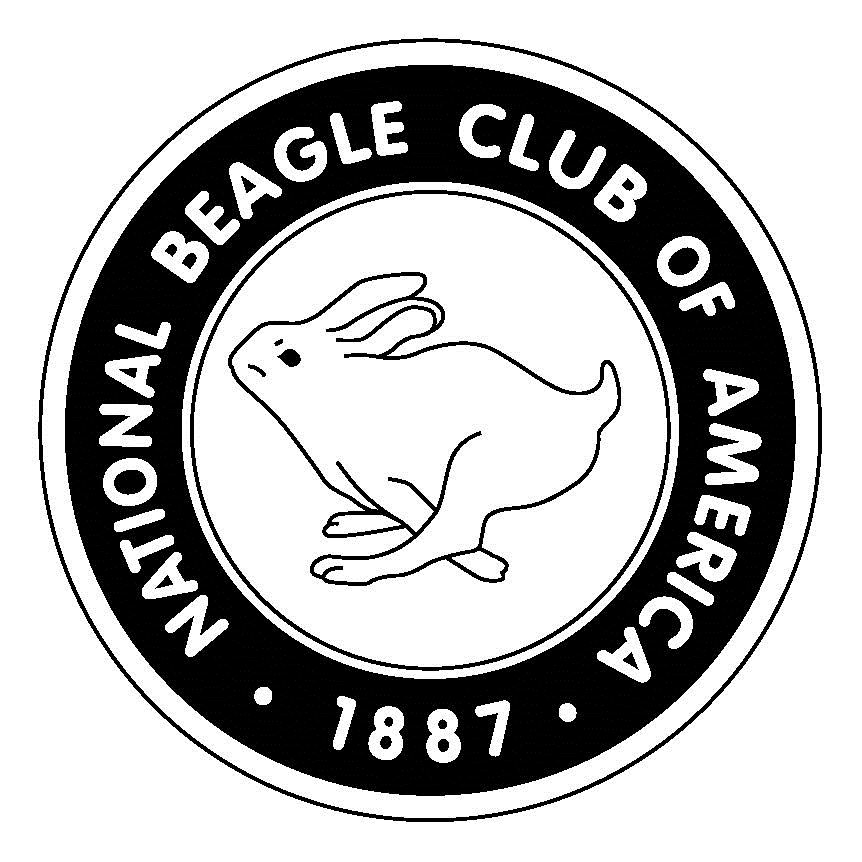|
Caring for Your Senior Beagle 
By Bev Davies-Fraser and Ruth Darlene Stewart
Exactly how old is a senior beagle? Good question!
Beagles
tend to maintain that puppy attitude for many years longer than most
breeds. It might be hard to tell when it’s time to take care of those
extra needs required for their senior years.
In
general, beagles are considered veterans around the age of 7. From
experience, some seem older sooner than 7, but most don’t show their age
until 8 or 9. To be on the safe side, use 7 as a rule of thumb. The
best way to maintain sound health in your beagle is to be sure to feed
good quality food for the entire life of your beagle, get plenty of
exercise and mental stimulation AND keep a regular routine.
Excess
weight is probably the biggest problem in older beagles. That soft
pleading expression that we love so much often will lead the gullible
owner to give extra food or treats. Don’t be fooled by the begging!
Beagles have a tendency to gain weight. A good weight is important to
maintain for the life of your beagle. Do NOT let your senior beagle get
fat! All those extra pounds ‘of love’ will lead to discomfort and
perhaps more serious health issues with a senior dog. Old bones and
muscles will have a difficult time carrying around excess weight. They
will sleep more as seniors and they don’t require the same level of
exercise so watch their weight as their activity level decreases.
Discuss the proper weight of your beagle with your
Veterinarian/Breeder. Some owners/breeders change to a senior diet that
includes glucosamine chondroitin to help support those bones and joints
and is less in calories. Supplements such as Ester-C or Glycol Flex
may also be of benefit to your senior beagle. There are many supplements
of this type on the market. Your Veterinarian or Breeder can help you
choose a suitable supplement and/or food for your senior beagle.
Eye
sight can also fade with age. It is important to take care of the
health of your beagle’s eyes. One way to monitor the eyes is to have a
baseline exam done on your dog while still a puppy. This exam will alert
you to any potential problems in the future that can become a problem
in old age. Forewarned is forearmed! Generally, all beagles in the
senior years will develop cataracts. Keeping furniture in the same
places helps your old beagle ‘know’ his home making him/her more
comfortable and less stressed. Beagles can function well with very
limited sight as long as their environment is kept constant.
Beagles
typically have some ear issues during their lifetime. To prevent
problems when they are in their senior years, make sure to take care of
their ears while they are young. Hearing will fade over time, just as
eyesight. To prepare for this, train your dog at an early age to hand
signal commands. You can also use other signals. An example is a
light. I had one that when out for last potty time at night could not
hear me calling her. I would blink the porch light a couple of times
and she would then “see” the light and come in. As eyesight diminished
for her I started using a flashlight and would light up the ground in
front of her, she would then look up and come to me. Another method
that works well is training to vibration. If one of your older beagles
that have a hearing loss is sound asleep, touch something close to them
so they can feel the vibration, that way they don’t startle. Gradually
get them use to you touching their pillow or tapping their crate as a
sign to wake up.
You
should start ahead of time training your beagle with alternative
signals. You will be glad that you did! Beagles can live well into
their mid teens. You want to be preparing for old age while your beagle
is still young.
Dental
care is extremely important in beagles. They tend to have tartar
accumulation, especially those that “recycle”. That is a nice term for
eating their and other dog’s feces.
Start
with good dental care during their early years. Preventing abscess
teeth, tooth loss and gum inflammation is extremity important to the
overall health of your senior. Periodontal disease is
a common way for bacteria to enter the blood stream and cause problems
with other organs. Having a proactive dental program will reduce the
need for expensive dental cleaning that usually require general
anesthesia. Anytime general anesthesia is needed your beagle is at
risk, even more so with the senior beagle.
Finally,
just make sure that your senior beagle gets exercise suitable for their
age. They may seem like they are still as young and as active as they
once were, but modify your schedule suitable to their age. Try to avoid
them jumping up or down from high places such as a human bed. Doggie
steps are great.
In
summary: Always feed a good quality food suitable to the age of your
dog, exercise your dog regularly, start training with hand signals and
ways to help them “Hear and See”, provide good dental care, and discuss
with your Veterinarian/Breeder any health issues that may arise.
Veterinarians will suggest doing “Senior Profile” lab tests at some
time around the age of 7. This will check for any abnormalities in
their blood work that might indicate undetected problems with their
health. The goal is to keep your beagle happy and healthy well into
their teens and to do that takes dedication, knowledge and lots of love.
 
The Senior Beagle by Dennis Dollar
Many changes occur in beagles, like any dog, as they age. The key to caring for aging beagles is to spend quality time with your older beagle to distinguish between the normal changes that come with age and the early signs of health problems. Careful and attentive observation will reveal many signs of disease or injury which can be treated quickly. Like younger dogs, the senior beagle should be regularly groomed, which provides the perfect time to physically examine the dog and find early signs of disease or injury. By knowing your older beagle, you can help them adapt to the normal changes that come with age by modifying the dog's environment, and changing the way in which you interact with your older friends, while simultaneously diagnosing problems early and using-- but not over using -- appropriate medications and supplements.
Normal Changes That Come With Age
As beagles age, their metabolism changes and their need for calories decreases. In general, their maintenance energy requirement decreases by about 20%. Because their activity usually decreases as well, their energy needs are decreased by another 10-20%. Adjustments can be made by switching to specially formulated senior food, and substituting items such as carrots or other vegetable for treats.
Older beagles may start to show gray hair, most often on the muzzle and around the eyes. The coat may also become thinner and duller. Fatty acid supplements may help restore some of the luster to the coat. If the coat of an older beagle changes significantly, you should have this checked by a veterinarian, it may be an early sign of disease or nutritional deficiency. Older dogs may also need to be groomed more often, with special attention given to the anal area. While grooming, you should feel all parts of your beagle’s body to find either tender areas or unusual growths and lumps. Some older dogs develop multiple benign tumors of the skin, which are generally not removed. Any unusual changes in size, appearance or texture of these growths, however, should be reported to your veterinarian, as they may be indications of malignancy.
Dental disease is the most common change seen in older beagles. Routine dental care including toothbrushing, can help keep dental disease to a minimum. Beagles who have not received proper dental care can develop significant dental disease as they age and may develop life-threatening complications. A dental care program should consist of toothbrushing, regular dental checkups, and professional cleaning as needed.
As beagles age, the movement of food through their digestive tracts slows. This can result in constipation. A good practice with the older beagle is to make sure that there is plenty of fiber in their diet. This can be accomplished by adding a tablespoon of canned pumpkin (not pie filling) or a fiber product such as Metamucil or All Bran or Bran Buds, to their food daily. Constipation can also be a sign of some serious disease conditions, and a beagle experiencing constipation should be evaluated by a veterinarian.
Arthritis is not an uncommon occurrence in older beagles, especially if they injured joints earlier in their life. As in people, arthritis in beagles may range from only slight stiffness to a debilitating condition. Accommodations should be made for older beagles that have difficulty going up and down stairs, jumping into the car, or walking through snow. Chondroitin and glucosamine supplements can be beneficial to support healthy joints. There are many chondroitin and glucosamine products on the market specially formulated for dogs that make it an enjoyable treat for your dog.
Older beagles who are inactive will also lose muscle mass and tone. Thus, regular exercise for an older dog is important for the health of the muscles, as well as the heart, digestive system, and general disposition. Exercise routines can be adapted according to the older beagle’s abilities. Swimming and or regular short walks will help maintain and strengthen the your older beagle’s muscles.
As beagles age, their ability to regulate their body temperature decreases. Thus, they may become less adaptable to temperature changes. Beagles who could handle cold temperatures when young, may not be able to as they age. Monitoring the environmental temperature around your dog, and making adjustments will help your older dog be more comfortable. You may need to move his bed closer to a heat register, or keep him indoors during hot or cold weather.
Some beagles will experience hearing loss as they age. Hearing loss generally cannot be reversed, but some changes in interaction with the dog can help reduce the effects. So, it is a good idea to teach senior beagles hand signals for various commands while they are still young enough to have full hearing. Also, special care should be taken to protect them from hazards, such as cars and kids that they may not hear or see.
Many dogs, including beagles, develop a cloudy or “bluish” transparent “haze” in the pupil area of the eyes. This is a normal effect of aging, and the medical term for this is lenticular or nuclear sclerosis. In this condition, the lens of the eye appears cloudy, however, the dog can usually see quite well. Many owners are concerned their dog has cataracts, which do affect vision, when the dog really has nuclear sclerosis. As noted below, if you have any question, you should you’re your senior beagle’s eyes examined by your veterinarian, as it may be a sign of a more serious condition.
Veterinary Care For The Senior Beagle
As a general rule, by about the age of seven or eight, it is a good idea for a beagle to have a full physical examination which may include a full blood panel so your veterinarian will have a baseline for future treatments and will show early signs of decreased kidney, liver and glandular function. As a beagle ages, the immune system may not function as effectively, making the senior beagle more prone to develop infectious diseases. Therefore, you should maintain the vaccination schedule recommended by your veterinarian. On the other hand, recent studies have shown that over-vaccination poses as much if not more risks than under-vaccination. Therefore, if you have any questions about the need for vaccinations, ask your veterinarian about the advisability of blood titre testing as opposed to risking over-vaccinations.
There are a number of classic signs that you should watch for that will tell you that an older beagle needs to be seen by your veterinarian to determine whether these changes are part of the normal aging process of early signs of disease.
Changes in activity level and behavior
As with any beagle, any changes in appetite should be matter of concern. Senior beagles may also show a decreased activity level. This may be due to normal aging or be the first sign of a number of different diseases ranging from arthritis to thyroid problems. Older beagles may also have a decreased ability to cope with stress, and this can result in behavior changes. Separation anxiety, aggression, noise phobias, and increased vocalization can develop or worsen in older Beagles. You know your beagle better than any veterinarian, so you are in the best position to notice changes in behavior and activity level. Like people, the senior beagle may have a bad day from time to time, but if this persists it could be signs of any number of diseases, and you should discuss these changes in activity or behavior with your veterinarian.
Increased water consumption
Increased water consumption can be an early sign of many diseases, such as kidney disease, Cushings’ Disease or diabetes. Many of these diseases can be treated or managed through medication. So if you notice a significant increase in your senior beagle’s water consumption you should consult your veterinarian to have appropriated testing conducted.
Dental problems
As a beagle ages, tartar, gum disease, and tooth loss are all potential problems. Bad breath or bleeding gums are signs that your senior beagle needs professional dental care. In addition to the buildup of tartar and plaque, bad breath and bleeding gums may also be the symptom of oral cancers, infections, and metabolic diseases, such as kidney disease or Diabetes Mellitus.
Changes in the eye and vision loss
Cataracts and glaucoma are common in older beagles. Any significant changes in vision or appearance of the eyes, including shape or color could signal an emergency and you contact your veterinarian as soon as possible. With early treatment, many diseases of the eyes, such as glaucoma, can be managed with simple oral medication. Ophthalmic exams should be part of the physical exam in older dogs.
Urinary incontinence and loss of housetraining
Some older beagles who have been housetrained for years, particularly spayed females, may start having “accidents.” As with other behavior problems in older beagles, this may be a part of the aging process or there may be multiple medical causes for this change in behavior. Any older beagle with a house soiling problem should be examined by a veterinarian and you should be prepared to give a detailed history of the color and amount of urine (or stool) passed, the frequency at which the dog needs to eliminate, changes in eating or drinking habits, the dog's posture while eliminating, and whether the “accidents” only occur when the owner is gone. Medical conditions contributing to the house soiling problem should be treated appropriately.
Prostate enlargement
When an unneutered male beagle reaches 8 years of age, it has been reported that he has a greater than 80% chance of developing prostate disease, but it is rarely cancerous. In most cases, the prostate just enlarges. The prostate enlargement, however, can cause problems with urination or defecation. Older male beagles, especially those who are not neutered should have their prostate gland checked as part of the regular physical exam. The risk of prostate disease can be greatly reduced if the dog is neutered.
Changes in mammary glands
Female dogs may develop some hardening of the mammary glands due to the infiltration of fibrous tissue. Breast cancer in unspayed beagles is not uncommon. Older female beagles, whether they are spayed or not, should have their mammary glands checked as part of the regular physical exam.
Conclusion
You know your beagle better than anyone. Therefore you should observe your older beagle more closely, taking particular notice of physical and behavioral changes. Do not disregard a change in your beagle’s activity or behavior as just being part of the aging process. Many of the changes can also be signs of a serious disease which is most easily treatable when caught early. If you are in doubt, do not hesitate to consult your veterinarian and be sure to discuss any concerns you have about your older beagles.
|



